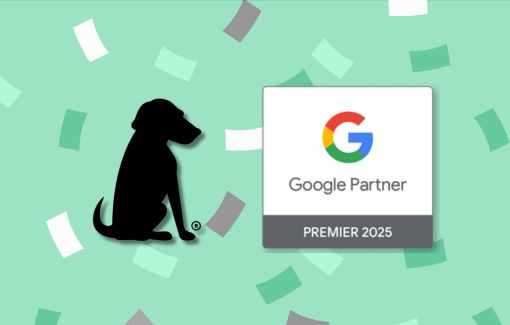
While attraction marketing can help build brand awareness, generate leads, and drive direct bookings, it’s essential to measure the success of your marketing campaign by analyzing KPIs (KPI marketing). By analyzing these metrics, you can make data-driven decisions that will help your brand succeed in a crowded market.
Tourism and adventure brands can significantly benefit from incorporating ROI marketing and KPI marketing strategies into their campaigns.
By setting specific ROI marketing goals and KPI marketing targets, brands can track their spending and measure their success. This approach not only helps brands identify areas for improvement but also enables them to make informed decisions, stay competitive, enhance the customer experience, build brand awareness, and generate revenue.
Why should tourism brands care about tourism marketing?
While attraction marketing can help build brand awareness, generate leads, and drive direct bookings, it’s essential to measure the success of your marketing campaign by analyzing KPIs (KPI marketing). By analyzing these metrics, you can make data-driven decisions that will help your brand succeed in a crowded market. Tourism and adventure brands can significantly benefit from incorporating ROI marketing and KPI marketing strategies into their campaigns.
By setting specific ROI marketing goals and KPI marketing targets, brands can track their spending and measure their success. This approach not only helps brands identify areas for improvement but also enables them to make informed decisions, stay competitive, enhance the customer experience, build brand awareness, and generate revenue.
Seven reasons why your brand should care about tracking tourism and attraction marketing metrics
1. Evaluate ROI and KPI marketing
By regularly evaluating ROI marketing and KPI marketing, tourism and adventure brands can ensure that they are using the most effective strategies to reach their target audience and continue their growth trajectories. This means that you can avoid wasting resources on ineffective campaigns and focus on those that generate the most significant return on your attraction marketing media dollars.
2. Be strategic
The high costs associated with tourism businesses mean less gross revenue to experiment with on attraction marketing campaigns. Therefore, brands need to be strategic with regard to ROI marketing by evaluating marketing data quickly and correctly. By tracking marketing metrics and making data-driven decisions, brands can use their established KPI marketing goals to help determine if they are making the most of their resources and generating the highest possible ROI.
3. Be aware of seasonal brands
Seasonal tourism brands face unique challenges when it comes to marketing campaigns. With limited time to generate revenue and a smaller budget than year-round tourism brands, making every marketing campaign count is essential. That’s why seasonal tourism brands should use marketing metrics to track KPIs
4. Use metrics
Using metrics for marketing measurement allows seasonal tourism brands to measure the effectiveness of their campaigns and make data-driven decisions about future campaigns. For example, a ski resort could use metrics such as website traffic, social media engagement, and online bookings to track the success of a winter marketing campaign. With this data, they can determine which channels and tactics most effectively drive bookings and adjust their approach for future campaigns.
5. Listen to customer feedback
Marketing metrics can help seasonal tourism brands identify areas for improvement. For example, a beachside resort could use metrics such as customer feedback and review scores to identify areas to enhance the customer experience. The resort can drive more positive reviews and attract more bookings by making improvements based on customer feedback.
6. Stay competitive and stand out
Using marketing metrics can help seasonal tourism brands stay competitive in tourism marketing. With so many options for travelers, it’s essential to stand out from the competition. By tracking metrics such as search engine rankings and online reviews, tourism brands can stay on top of their competition and ensure they provide the best possible experience for their customers.
7. Make the most of seasonal booking
According to a report by Google, 57% of leisure travelers make their travel plans between two weeks and three months in advance. For seasonal tourism brands, there is a limited window of opportunity to generate revenue. By using marketing metrics to track the success of their campaigns, seasonal tourism brands can ensure that they are making the most of this window and driving as many bookings as possible.
Using marketing measurements to track campaign success
Utilizing the most effective and robust marketing measurement tools is crucial for ROI marketing and KPI marketing to help you obtain the data you need to evaluate your attraction marketing campaigns.
Here are some of the marketing measurement tools and techniques BlackDog Advertising recommends to create actionable data and evaluate the success of your tourism marketing efforts:
-
Google Analytics
This free tool can provide valuable insights into your website traffic and user behavior. By adding UTM parameters to your links, you can track the effectiveness of your tourism and attraction marketing campaigns across different channels.
-
Ads Pixel integrations
If you’re running paid advertising campaigns on platforms like Facebook or Google Ads, it’s essential to have pixel integrations set up on your website to track your KPIs. This allows you to track the actions of users who click on your ads and see how they interact with your website.
-
Call tracking capabilities
If your business relies on phone calls for bookings, it’s important to have call tracking capabilities. This allows you to track the source of the call and see which campaigns drive the most phone bookings.
-
QR codes with tracking
QR codes can be a great way to drive traffic to your website or promotions. You can see how many users are scanning your codes and which campaigns drive the most traffic by tracking codes.
-
Selling tickets online
By selling tickets online, you can track the number of bookings, revenue generated, and other key metrics. This is an easy form of marketing measurement that provides valuable data for forecasting and operations planning.
-
Set attainable goals
Before launching any attraction marketing campaign, it’s important to set attainable goals based on your expected ROI marketing budgets while also monitoring your cost-per-click and cost-per-mille. Doing this for every tourism campaign will help you manage your budget and make data-driven decisions to support your ROI marketing goals.
-
Review YOY data
Because travel is seasonal, it’s important to review year-over-year data to compare the effectiveness of your campaigns. However, it’s also important to note any events affecting tourism that may skew the data and make sure you’re comparing apples to apples.
-
Ask the experts for industry standards
It’s important to consult with experts familiar with your market to ensure you’re comparing your data to industry standards. This can help you set realistic goals and measure success against comparable businesses in your area.
-
Hire experts
Finally, hiring an advertising agency like BlackDog Advertising can be a boon to your tourism marketing and help drive bookings. Travel, tourism, attraction, adventure, and marketing measurement are our areas of expertise, and BlackDog Advertising can provide valuable insights and reporting tools to help you track your KPI marketing success. A good agency will have a robust reporting program that allows you to track your progress at your own pace, make the most of your ROI marketing, and launch campaigns backed by a data-driven marketing strategy.
Are you ready to launch and track successful campaigns?
Creating successful tourism marketing campaigns requires experience and intentional strategy focused on increasing sales and collecting first-person data to deliver crisp, well-crafted communications. BlackDog Advertising helps brands identify unique selling propositions and develop creative messaging that resonates.
We can help your brand select the most effective channels to reach your target audience and create a robust media plan to maximize your tourism and attraction marketing campaign. Plus, we’ll help you set clear KPI marketing strategy and marketing measurement metrics to track success, offer key insights and optimize future campaigns.









